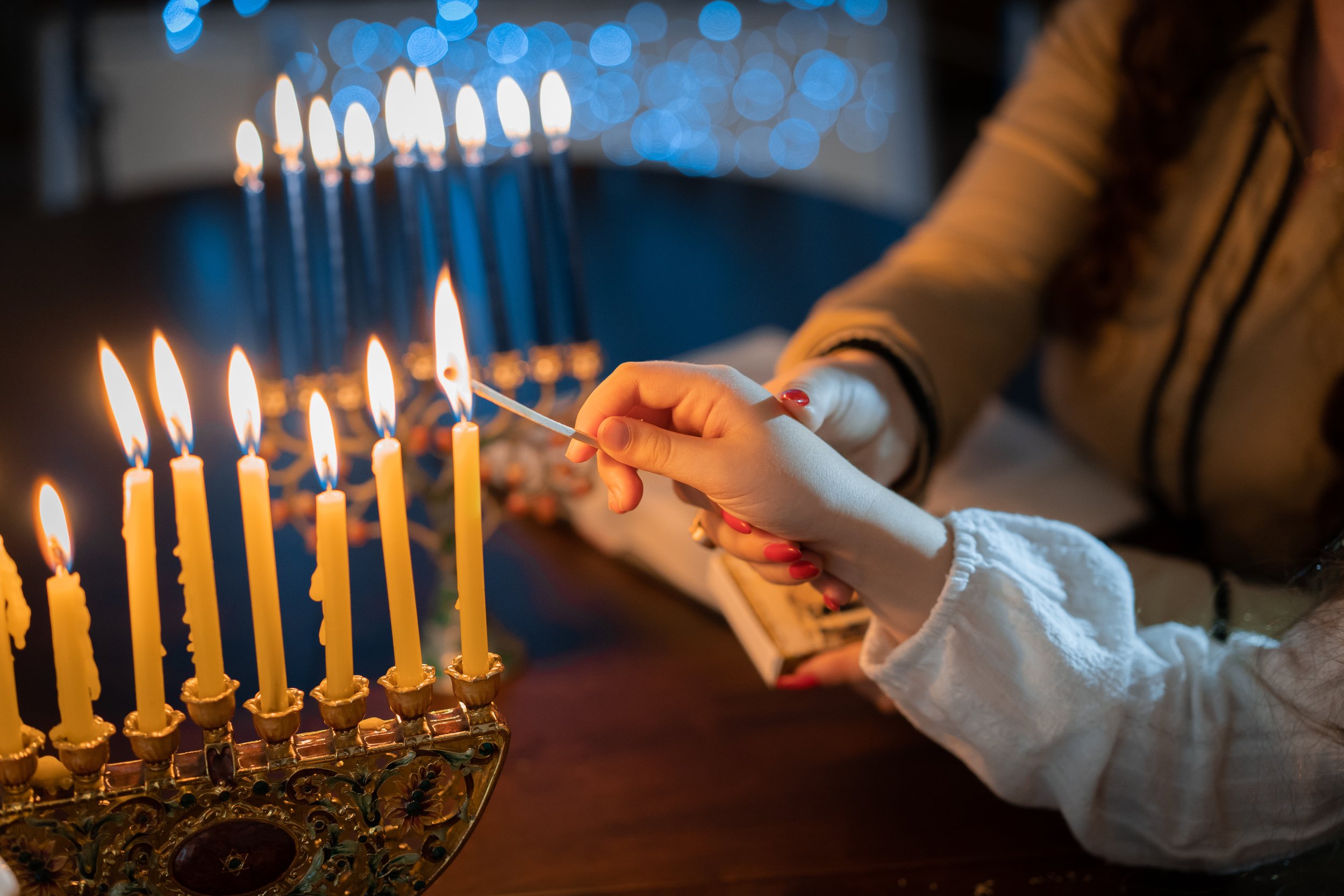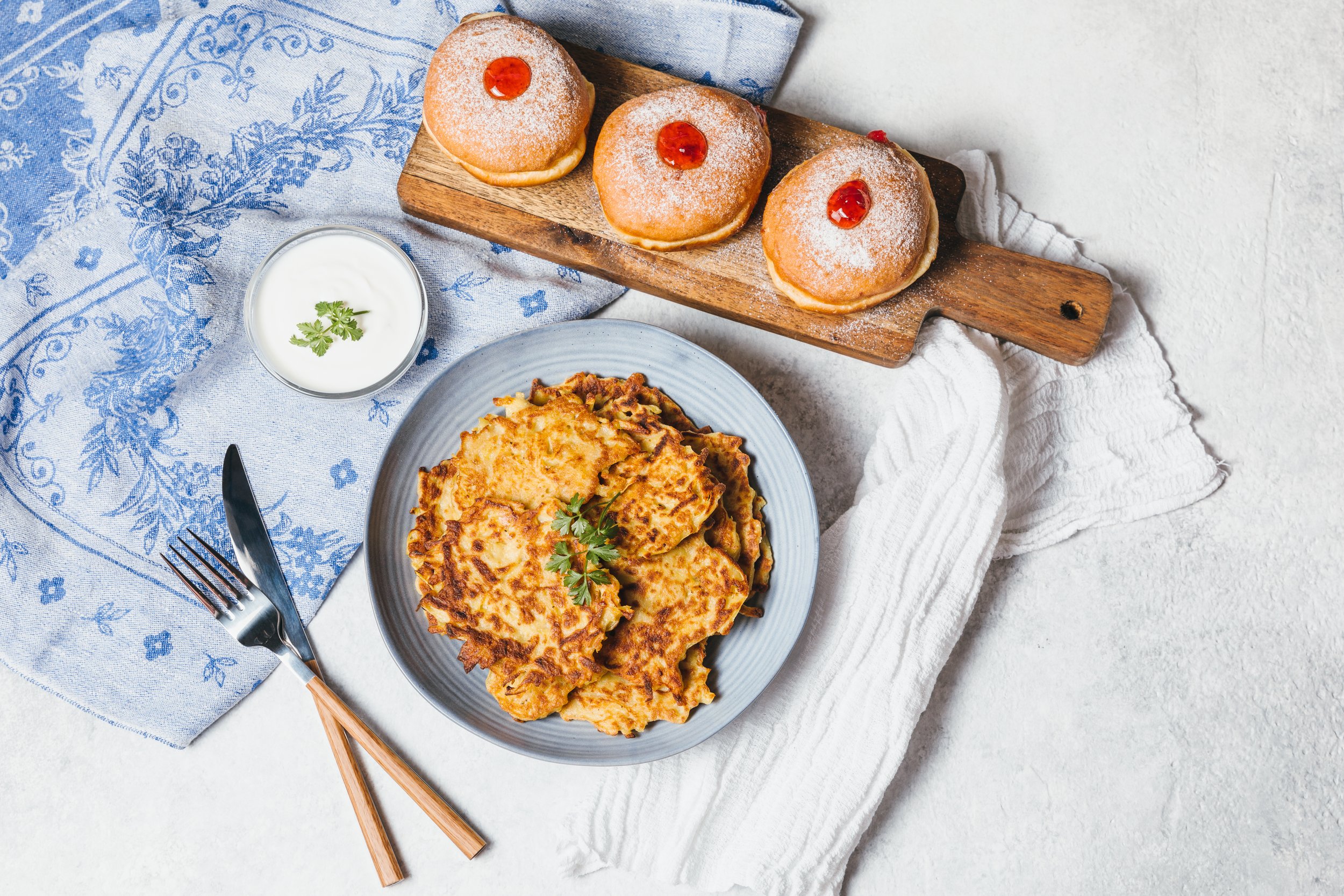Hanukkah
The Festival of Lights
What is Hanukkah?
Hanukkah is the Hebrew word for “dedication.” Also known as the Festival of Lights, Hanukkah is an eight-day Jewish holiday celebrating the rededication of the Temple in Jerusalem that happened in the second century BC.
Observed in November or December
Greeting:
Hanukkah Sameach! (“Happy Hanukkah!”)
What is the background of Hanukkah?
Hanukkah is tied to a time when Israel was struggling for existence. In 167 BC, Israel was under the rule of Antiochus Epiphanes (Greek for “God Manifest”), who was known for his cruelty and delusions of deity. His enemies mockingly referred to him as Antiochus Epimanes (“madman”).
Among many atrocities he committed to Hellenize Israel, Antiochus desecrated the Temple in Jerusalem, dedicating it to Greek gods and even sacrificing a pig on the altar.
The apocryphal books 1 and 2 Maccabees describe Israel’s plight under Antiochus’ mad rule, as well as the successful revolt against Antiochus led by the Maccabees, a Jewish family of priests. After winning their freedom, the Jewish people rededicated the Temple to God.
According to Jewish tradition, when the Temple was rededicated, there was only enough pure olive oil to light the Temple menorah for one day. As the story goes, the oil miraculously lasted eight days, long enough to purify more oil.
What Is a Dreidel?
A dreidel is a four-sided top. Under Greek rule, Torah-study was forbidden. To disguise their studies, Israelites would pretend to be playing dreidel games if anyone came by. Today, the dreidel bears Hebrew letters representing the phrase, “Nes Gadol Hayah Sham (a great miracle happened there),” in reference to Hanukkah.
How is Hanukkah celebrated today?
Today, in remembrance of God’s provision, Jewish people light the eight candles on the nine-candle menorah (the ninth candle, the shammash, is used to light the others). A new candle is lit on each night of Hanukkah, one candle for each day the oil burned. The candle lighting is often accompanied by readings of Psalms 113–118 and Numbers 7:1–8:4. Families also play games, exchange gifts, share meals, and attend plays and concerts at synagogues and schools.
What are traditional Hanukkah foods?
Since the legend of the miraculously burning oil is a central focus of Hanukkah, it is traditional to eat foods fried in oil during this festival. Eastern-European latkes (potato pancakes) are a popular choice for many; in Israel, sufganiyot (jelly-filled doughnuts) are a favorite.
What is Hanukkah’s significance to believers?
Hanukkah is a testament to God's faithfulness to the Jewish people by preserving them through war and persecution – and His faithfulness in fulfilling His promises to produce a Messiah from the line of David. If the Jewish people had succumbed to Hellenizing pressures and lost their religious and ethnic distinctness, the Messianic prophecies could not have been fulfilled.
For believers in Jesus, Hanukkah reminds us of two important points. First, it is a sobering reminder of the force of antisemitism (hatred of Jewish people) in the world. As believers, we should emulate God’s love and concern for His chosen people by standing against antisemitism.
Second, Hanukkah reminds us of God’s faithfulness – past, present, and future – to His church. Similar to Jewish history, church history has been marked by periods of intense persecution, yet God has continued to bless the spread of faith in Jesus throughout the earth, preserving the church since its birth.




